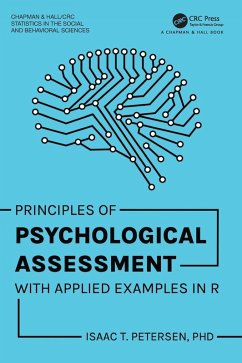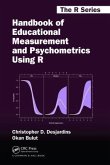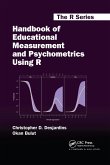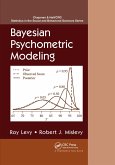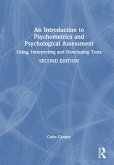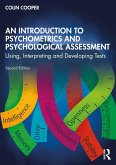This book highlights the principles of psychological assessment to help researchers and clinicians better develop, evaluate, administer, score, integrate, and interpret psychological assessments. It discusses psychometrics (reliability and validity), the assessment of various psychological domains (behavior, personality, intellectual functioning), various measurement methods (e.g., questionnaires, observations, interviews, biopsychological assessments, performance-based assessments), and emerging analytical frameworks to evaluate and improve assessment including: generalizability theory, structural equation modeling, item response theory, and signal detection theory. The text also discusses ethics, test bias, and cultural and individual diversity.
Key Features
Gives analysis examples using free softwareHelps readers apply principles to research and practiceProvides text, analysis code/syntax, R output, figures, and interpretations integrated to guide readersUses thefreely available petersenlab package for R
Principles of Psychological Assessment: With Applied Examples in R is intended for use by graduate students, faculty, researchers, and practicing psychologists.
Key Features
Gives analysis examples using free softwareHelps readers apply principles to research and practiceProvides text, analysis code/syntax, R output, figures, and interpretations integrated to guide readersUses thefreely available petersenlab package for R
Principles of Psychological Assessment: With Applied Examples in R is intended for use by graduate students, faculty, researchers, and practicing psychologists.

